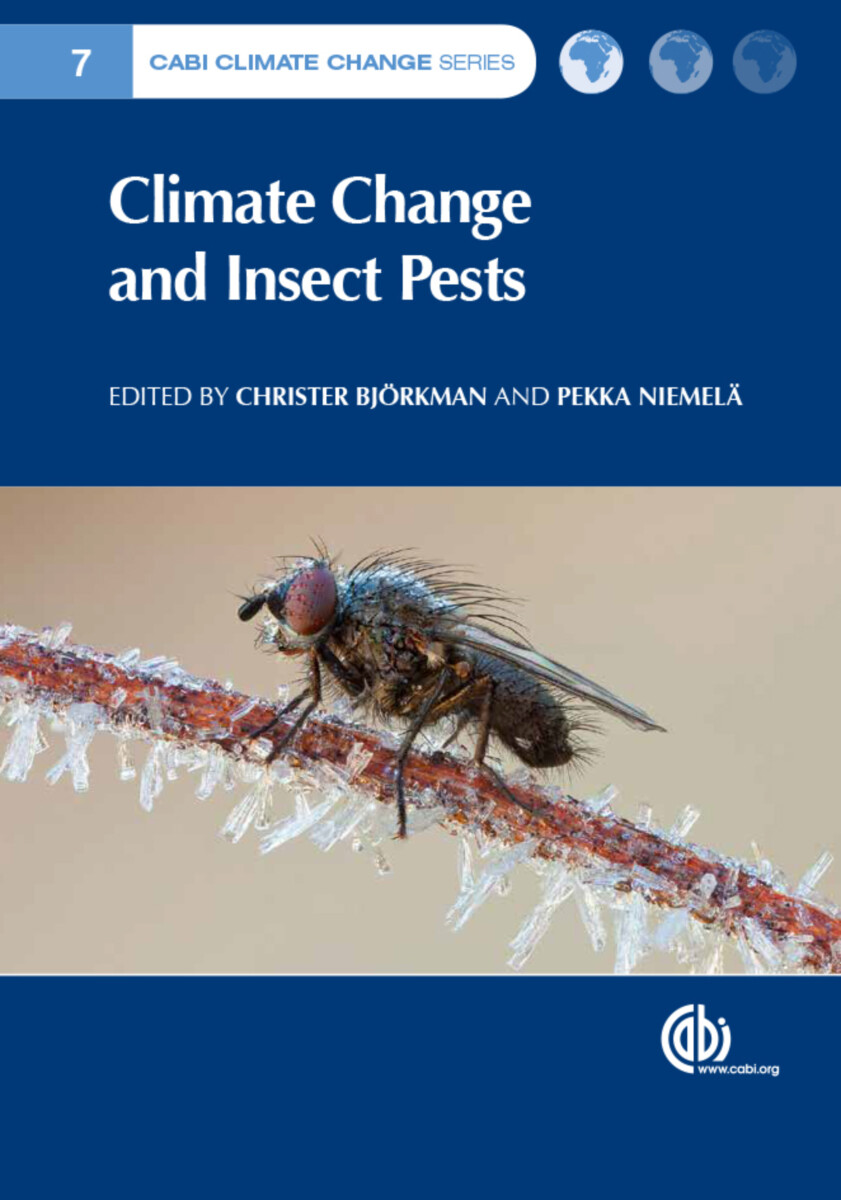- Publisher
CABI - Published
16th November 2015 - ISBN 9781780643786
- Language English
- Pages 292 pp.
- Size 6.75" x 9.5"
- Publisher
CABI - Published
1st September 2020 - ISBN 9781789247695
- Language English
- Pages 292 pp.
- Size 6.75" x 9.5"
Insects, being poikilothermic, are among the organisms that are most likely to respond to changes in climate, particularly increased temperatures. Range expansions into new areas, further north and to higher elevations, are already well documented, as are physiological and phenological responses.
It is anticipated that the damage by insects will increase as a consequence of climate change, i.e. increasing temperatures primarily. However, the evidence in support of this common "belief" is sparse. Climate Change and Insect Pests sums up present knowledge regarding both agricultural and forest insect pests and climate change in order to identify future research directions.
Foreword
Matthew P. Ayres
Part I: General Issues and Patterns
1. Climate Change and Insect Pest Distribution Range, Andrea Battisti and Stig Larsson
2. Species Distribution Modelling in Predicting Response to Climate Change, Matthew P. Hill and Linda J. Thomson
3. Adaptive Responses of Plants to Insect Herbivores under Climate Change, Sergio Rasmann and Loïc Pellissier
4. Boreal Woody Species Resistance Affected by Climate Change, Riitta Julkunen-Tiitto, Line Nybakken, Tendry Randriamanana and Virpi Virjamo
5. Effects of Climate Change on the Interactions between Insect Pests and Their Natural Enemies, Gregor Kalinkat and Björn C. Rall
Part II: Agricultural Pests
6. Physiological Variation of Insects in Agricultural Landscapes: Potential Impacts of Climate Change, John S. Terblanche, Minette Karsten, Katherine A. Mitchell, Madeleine G. Barton and Patricia Gibert
7. Climate Change and Biological Control in Agricultural Systems:Principles and Examples from North America, Sanford D. Eigenbrode, Thomas S. Davis and David W. Crowder
8. Climate Change Effects on Agricultural Insect Pests in Europe, Leena Lindström and Philipp Lehmann
Part III: Forest Pests
9. Abiotic Factors, Climatic Variability and Forest Insect Pests, Seppo Neuvonen and Tarmo Virtanen
10. Responses of Tree-killing Bark Beetles to a Changing Climate, Kenneth F. Raffa, Brian H. Aukema, Barbara J. Bentz, Allan L. Carroll, Jeffrey A. Hicke and Thomas E. Kolb
11. The Eurasian Spruce Bark Beetle: The Role of Climate, Bjørn Økland, Sigrid Netherer and Lorenzo Marini
12. Pine Wood Nematode, Pine Wilt Disease, Vector Beetle and Pine Tree:How a Multiplayer System Could Reply to Climate Change, Alain Roques, Lilin Zhao, Jianghua Sun and Christelle Robinet
13. Northern Geometrids and Climate Change: From Abiotic Factors to Trophic Interactions, Tea Ammunét, Helena Bylund and Jane U. Jepsen
14. Effects of New Forest Management on Insect Damage Risk in a Changing Climate, Christer Björkman, Helena Bylund, Urban Nilsson, Göran Nordlander and Martin Schroeder
Christer Björkman
Christer Björkman teaches at the Swedish University of Agricultural Sciences.
Pekka Niemala
Pekka Niemala is with the University of Turku, Finland.


